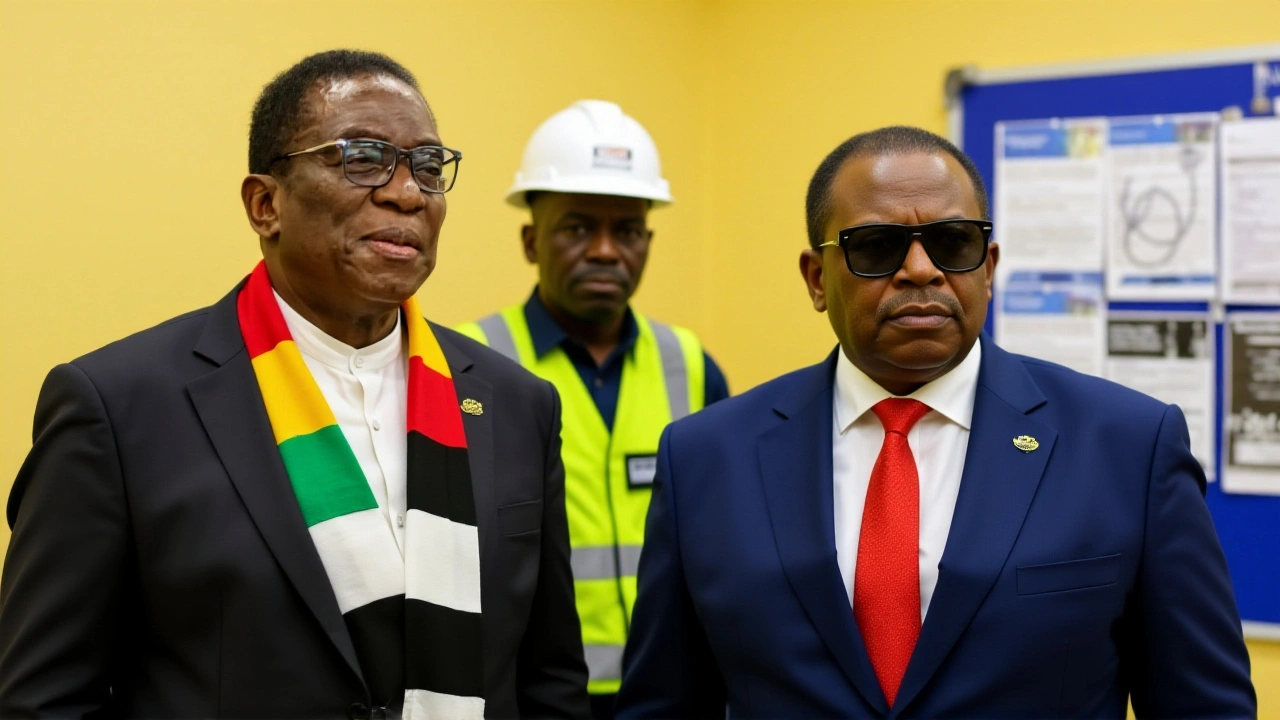Zimbabwe – Latest News and Insights
When working with Zimbabwe, a landlocked country in Southern Africa known for its dramatic landscapes and complex history. Also known as the Republic of Zimbabwe, it faces a mix of political upheaval, economic pressure, and social change. Zimbabwe today is a case study in how regional dynamics shape national outcomes.
Located in Southern Africa, the region that stretches from the Atlantic coast to the Indian Ocean and includes diverse economies and cultures, the country’s fortunes are closely tied to its neighbours’ trade routes and climate patterns. The interplay between regional trade agreements and local policy decisions creates a web of cause‑and‑effect that directly influences market stability. For instance, droughts in the Zambezi basin ripple through food prices, while mining tariffs in neighboring nations affect export revenue.
Key Topics Shaping Zimbabwe’s Landscape
Effective water management, the planning, development, and distribution of water resources to meet agricultural, industrial, and domestic needs is crucial for a country where agriculture accounts for a large share of employment. Recent government initiatives aim to modernise irrigation, introduce rain‑water harvesting, and rehabilitate aging dams. These steps not only boost crop yields but also reduce the risk of urban water shortages, a growing concern in Harare and Bulawayo.
Investments in education, formal learning systems from primary schools to universities that build human capital and drive socioeconomic progress are another pillar of national development. New curriculum reforms focus on STEM subjects, while scholarship programs target rural students. Improved education outcomes feed back into the labor market, creating a more skilled workforce that can attract foreign direct investment.
Political stability remains a cornerstone of any long‑term plan. Recent elections have sparked debates over electoral reforms, media freedom, and the role of civil society. The balance between government authority and opposition voices determines how quickly policy can adapt to emerging challenges. When the political environment supports transparent governance, reforms in water and education sectors gain traction faster.
Economic diversification is also on the agenda. Beyond traditional mining and agriculture, the tech startup scene is budding in cities like Harare, with fintech solutions addressing payment infrastructure gaps. Export‑oriented manufacturing, especially in textiles, is seeing renewed interest thanks to regional trade blocs that lower tariff barriers.
All these strands—regional context, water stewardship, learning systems, political climate, and economic diversification—interlock to shape the story of today’s Zimbabwe. Below you’ll find a curated mix of articles that dive deeper into each of these areas, from policy analysis to on‑the‑ground reports. Whether you’re tracking water‑related projects, following political developments, or exploring new business opportunities, the collection gives you a clear window into the forces at work in Zimbabwe and its wider region.

Zimbabwe Party Pushes Mnangagwa Term Extension to 2030, Sparks Political Rift
- by Masivuye Mzimkhulu
- on 24 Oct 2025
ZANU-PF pushes a constitutional amendment to let President Mnangagwa stay until 2030, sparking legal battles, factional splits, and US warnings.